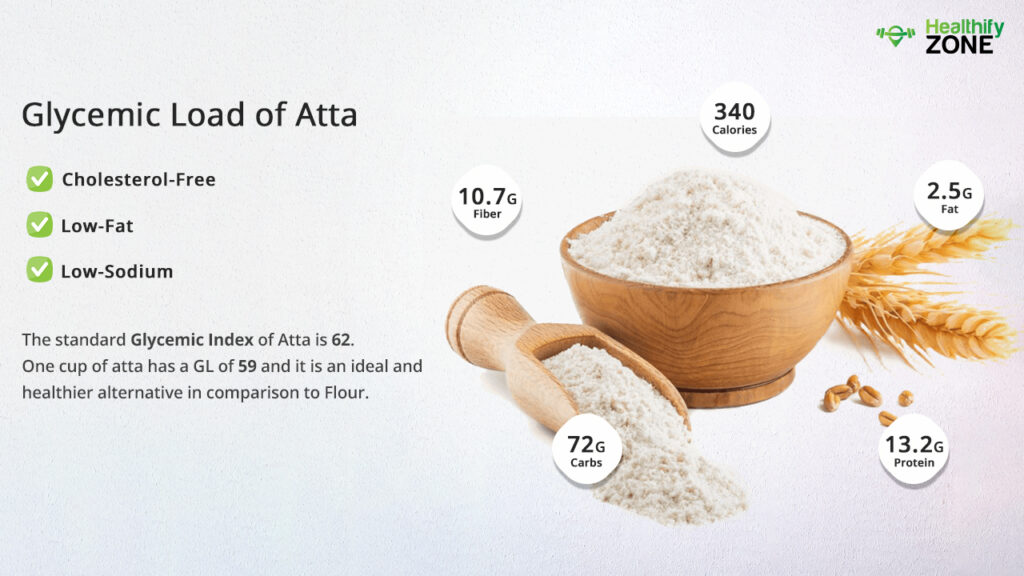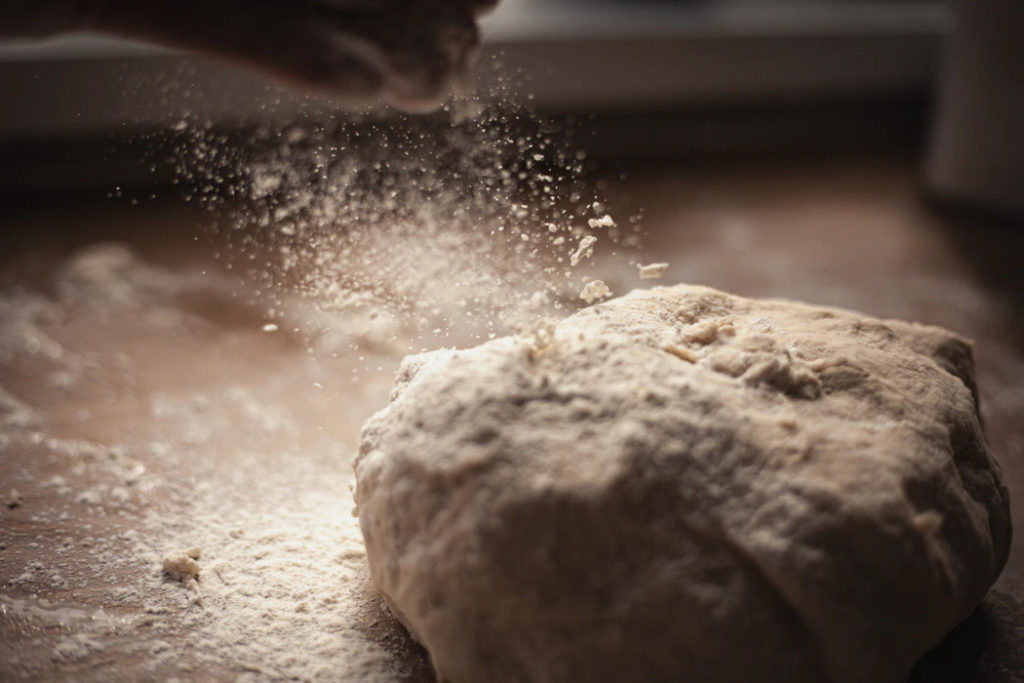The value of carbs present in food with the pace at which it increases your blood glucose levels is called the Glycemic Load. A simple way of making healthy diet choices is following the Glycemic Index that compared and showed alternative sources of nutrients according to the blood glucose levels. Glucose leads to a higher blood glucose response compared to fructose.
Wheat is the most common grain that is consumed all over the world. According to the International GI Tables, it has a GI of 62. Atta is subject to a lot of controversies because it has a protein called gluten, which can cause a harmful immune response in predisposed individuals. However, it is important to point out that it is a rich source of a number of antioxidants, minerals, vitamins, and fiber.

Atta is present in the staple diet and comprises healthy nutrients like
- Fiber
- Selenium
- Manganese
- Phosphorous
- Copper
- Folate
- Feluric Acid
- Phytic Acid
- Alkylresorcinols
- Lingans
- Wheat germ
- Lutein
How to Calculate Glycemic Load of Atta?
The standard Glycemic index of atta is 62. The high glycemic index of the fruit helps in reducing the risks related to cardiovascular diseases. If we want to talk about diet, the key to prevent diabetes or any chronic illness is to distribute the carbohydrate consumption content throughout the day and manage the sugar levels in the body correctly—however, the glycemic load for one cup of chopped atta= 5.2 approximately which makes it an extremely favorable food.
The Formula/Procedure For Calculation of Glycemic Index of the Atta :
GL = GI * carbs / 100
where
- GL – glycemic load;
- GI – glycemic index;
- and carbs – the amount of carbohydrates in the portion.
| SL.NO | ATTA BY WEIGHT IN (g) | GLYCEMIC LOAD |
| 1. | 100 g of Atta | 47 (high) |
| 2. | 250 g of Atta | 117.5 (high) |
| 3. | 500 g of Atta | 235 (very high) |
| 4. | 1 Kg of Atta | 470 (very high) |
| 5. | 1 Cup of Atta (150 g) | 59 (high) |
Is Atta Safe to Consume If You Have Diabetes?
For people who are diabetic, it is important to control their blood sugar levels. It is essential that they avoid foods that cause a spike in their blood sugar, and thus, they must be avoiding food items with a high glycemic load. Clearly, when 100 g of atta has a GL of 47, it must be consumed in moderation. What can be done is that you can mix 30-40 g of whole-wheat atta with oat flour and other flours with lower GL and make food out of that.
Can I Eat Atta During a Fat-Loss Diet?
You can eat atta during a strict fat-loss diet. If you are looking for good results, you should avoid having more than 50 g of atta per serving.

- 50 g of atta has a GL of 23.5 which is in the permissible levels.
- A whole cup of atta something which should be taken rarely in your ingredients if you are on a fat-loss diet.
Can I Eat Atta During a Low-Carbohydrate Diet?
You can eat atta during a strict low-carb diet. However, the portion size of a atta is something that you need to take into account. We suggest you not consume more than 100 g of atta.
Is Atta High in Sugar?
100 g of atta has 76 g of carbs and 0.3 g of sugar. Although not sugary, it will increase your blood glucose levels compared to the other ingredients. This is very high in carbs, which is the cause for high GL.